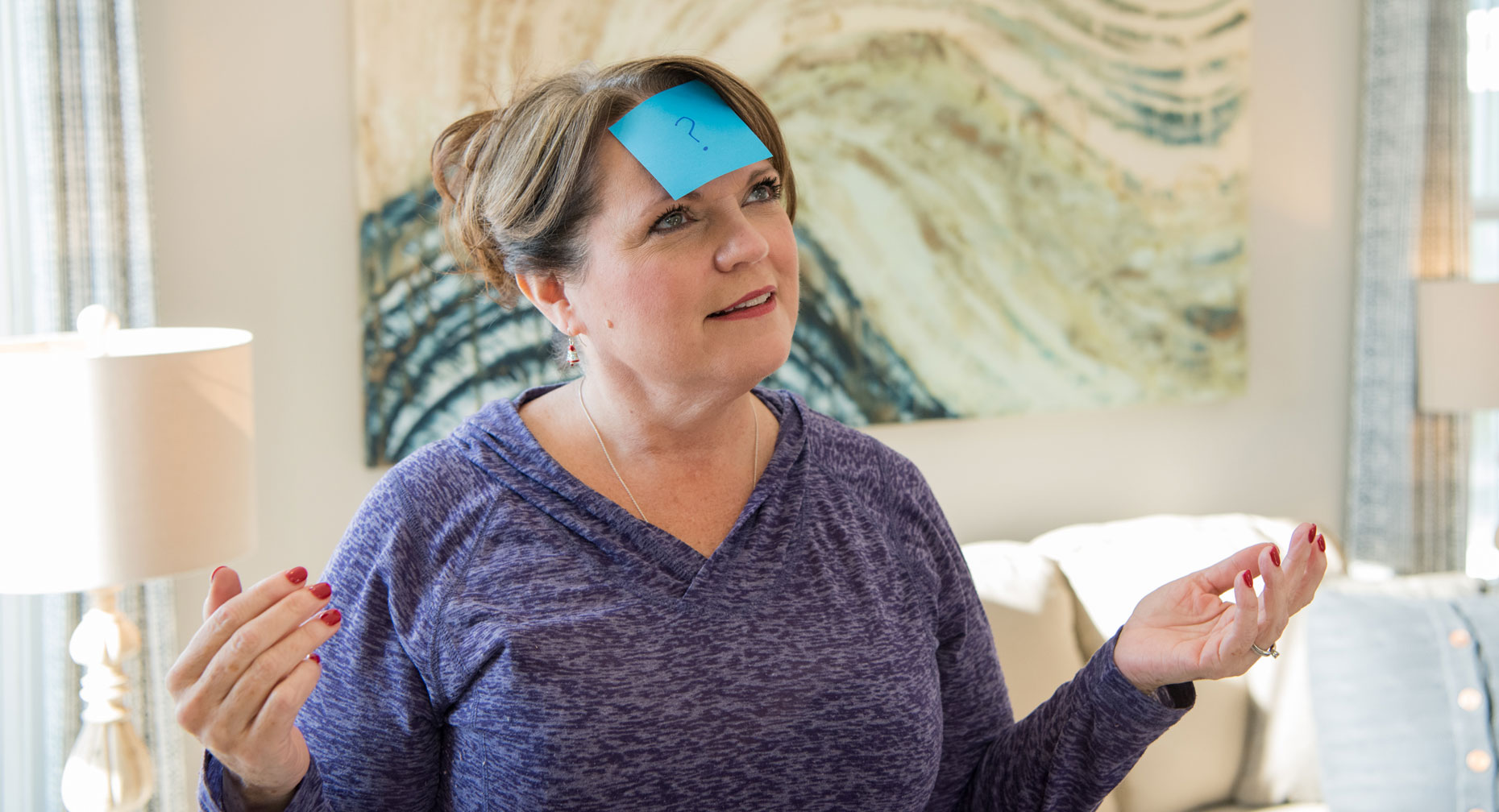Memory Alert! Your Brain Fog is Real

Find Your Perfect Match
Answer a few questions and we'll provide you with a list of primary care providers that best fit your needs.
The name of that great ‘80s movie is buried somewhere in your brain, but you can’t quite think of it. You know the face of that high school classmate you saw in the mall last week, but you can’t recall her name. You walk downstairs with a purpose, and by the time you get there you can’t remember what you came for.
If you’re concerned about these or other memory lapses, it may be reassuring to know that they could result from something as simple as changing hormones. A recent study published by Brigham and Women’s Hospital in Massachusetts revealed a link between memory issues and menopause in women age 45 to 55.
Menopause Brain Fog: It’s Not a Myth
The research team studied 200 men and women age 45 to 55 and concluded that up to two-thirds of women performed more poorly on verbal memory tasks as their estrogen levels dropped during menopause.
Menopause, defined as a phase when a woman’s menstrual periods have stopped for 12 consecutive months, generally occurs between age 45 and 55. This is far younger than 65, the age experts typically begin studying a decline in learning and memory.
Up to 60 percent of women report memory issues as they go through menopause. On average, the study found, women with lower levels of the hormone estradiol performed worse on memory tests. Estradiol is a form of estrogen produced by the ovaries.
Postmenopausal women showed a different pattern of activity in their hippocampus, a brain center for thinking and memory, as compared to other women.
 Interestingly, the third of postmenopausal women who scored highest on memory tests showed brain activity (measured through magnetic resonance imaging) that looked like premenopausal women, even if they had low estradiol levels.
Interestingly, the third of postmenopausal women who scored highest on memory tests showed brain activity (measured through magnetic resonance imaging) that looked like premenopausal women, even if they had low estradiol levels.
Researchers have no explanation why menopause affects memory in some women and not in others. It’s reassuring for those who do experience changes, however, that memory performance generally returns following the hormonal changes of menopause.
A different National Institutes of Health-funded study learned from thousands of women going through menopause that memory problems tend to be worse right before menopause and improve after menopause.
Memory performance generally returns following the hormonal changes of menopause.
Tips for Boosting Memory
Whatever your age or estrogen level, there are certain steps you can take to improve or preserve your memory:
- Exercise. Brisk walking or other moderate exercise seems to improve brain function.
- Stay socially active.
- Engage your brain. Healthy activities include job-related brain work, reading, card playing and puzzle solving.
- Get enough sleep.
- Eat a healthy diet that’s low in fat and cholesterol, substances that can clog arteries to the brain.
- Don’t smoke.
- Consume alcohol in moderation.
- Maintain a normal weight and normal blood pressure.
Find Your Perfect Match
Answer a few questions and we'll provide you with a list of primary care providers that best fit your needs.
Source: North American Menopause Society; Harvard Gazette; HealthDay




